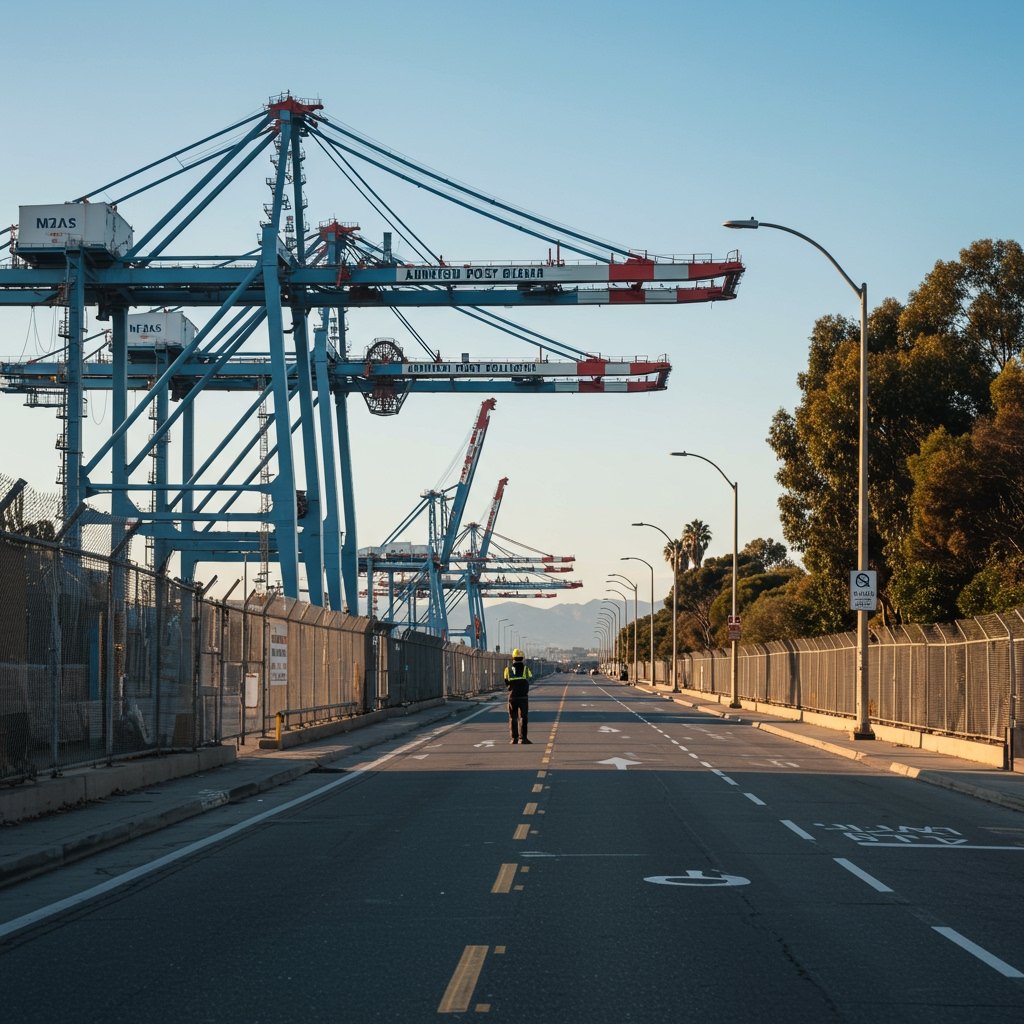California Senate Passes Sweeping Port Emissions Bill SB 1005
Sacramento, CA – The California State Senate today advanced a significant piece of environmental legislation, passing Senate Bill 1005, a measure designed to drastically cut harmful air pollution originating from the state’s major port operations. The bill, if ultimately enacted into law, would mandate a strict timeline for phasing out older, high-polluting diesel engines used at ports, including the critical gateways of Los Angeles and Long Beach.
Key Provisions and Mandate
The core of SB 1005 establishes a clear regulatory framework targeting the equipment responsible for a substantial portion of port-related emissions. Specifically, the bill mandates the phase-out of diesel engines manufactured before the year 2025 at these facilities. The ambitious deadline for this transition is set for 2030. This requirement applies to a wide range of diesel-powered vehicles and equipment operating within the port complex, from drayage trucks serving the port to cargo handling equipment used within terminals.
The legislation aims to accelerate the adoption of cleaner technologies, primarily zero-emission alternatives, within the port environment. By setting a hard deadline for the removal of pre-2025 diesel engines, proponents argue the bill creates the necessary market signal and regulatory push to drive investment in and deployment of electric, hydrogen, or other zero-emission technologies. This phased approach is intended to systematically address the cumulative impact of older diesel technology on air quality.
Driving Forces: Public Health and Environmental Justice
The primary motivation behind SB 1005 stems from persistent concerns over the public health impacts of port emissions on surrounding communities. Areas adjacent to major ports, particularly Los Angeles and Long Beach, are often densely populated and disproportionately affected by air pollution. Emissions from ships, trucks, trains, and cargo handling equipment contribute significantly to localized concentrations of diesel particulate matter, nitrogen oxides (NOx), and other pollutants.
These pollutants have been linked to a range of serious health issues, including increased rates of asthma, bronchitis, cardiovascular disease, and various forms of cancer. Community groups, public health advocates, and environmental organizations have long campaigned for stricter regulations to alleviate this health burden, framing the issue as one of environmental justice. They contend that residents living near ports, often low-income communities of color, bear an unfair share of the environmental and health costs associated with global trade.
Proponents of SB 1005, including a coalition of environmental and community groups, hailed the Senate’s passage as a crucial step towards rectifying this imbalance and delivering cleaner air to overburdened neighborhoods. They argue that the mandated phase-out is essential to meet California’s broader climate and air quality goals and that existing voluntary programs or less stringent regulations have not achieved the necessary reductions quickly enough to protect public health effectively.
Industry Concerns and Potential Impacts
While environmental and health advocates celebrate the bill’s progress, representatives from the shipping and logistics industries have voiced significant concerns. Opponents, including port operators, terminal companies, trucking associations, and various business lobbies, argue that the aggressive timeline and strict mandates of SB 1005 could impose substantial financial burdens on businesses operating within the ports.
Replacing existing diesel equipment with newer or zero-emission alternatives represents a massive investment. Industry stakeholders estimate the costs of transitioning fleets and infrastructure could run into billions of dollars. They caution that these costs could translate into increased operational expenses for carriers and shippers, potentially making California’s ports less competitive.
A major point of contention raised by opponents is the risk of cargo diversion. They argue that if operating costs become significantly higher in California compared to ports in other states, cargo owners and shipping lines may choose to reroute their freight to ports along the Gulf Coast, the Eastern Seaboard, or even to ports in Mexico or Canada. Such diversion could potentially lead to a loss of jobs, economic activity, and tax revenue in California.
Furthermore, industry representatives express concerns about the current availability and reliability of zero-emission technology at the scale required for full port operations by 2030. They argue that while technological advancements are being made, a mandated deadline might force businesses to invest in unproven or inadequately scaled solutions, creating operational challenges and potentially disrupting the supply chain.
The Path Forward: To the Assembly
With its passage in the California State Senate, SB 1005 now moves to the State Assembly for further consideration. The bill will undergo review and potential amendments in relevant Assembly committees before potentially being brought to a floor vote. The legislative process in the Assembly is expected to involve continued robust debate, with proponents emphasizing the critical need for public health protection and opponents highlighting the economic and logistical challenges.
The future of SB 1005 remains uncertain as it navigates the Assembly. Its ultimate success will depend on garnering sufficient support among Assembly members, balancing the competing interests of environmental protection, public health, and economic viability. The bill represents a critical juncture in California’s ongoing efforts to reconcile the vital economic function of its ports with its ambitious environmental mandates and the imperative to protect the health of its residents.



















